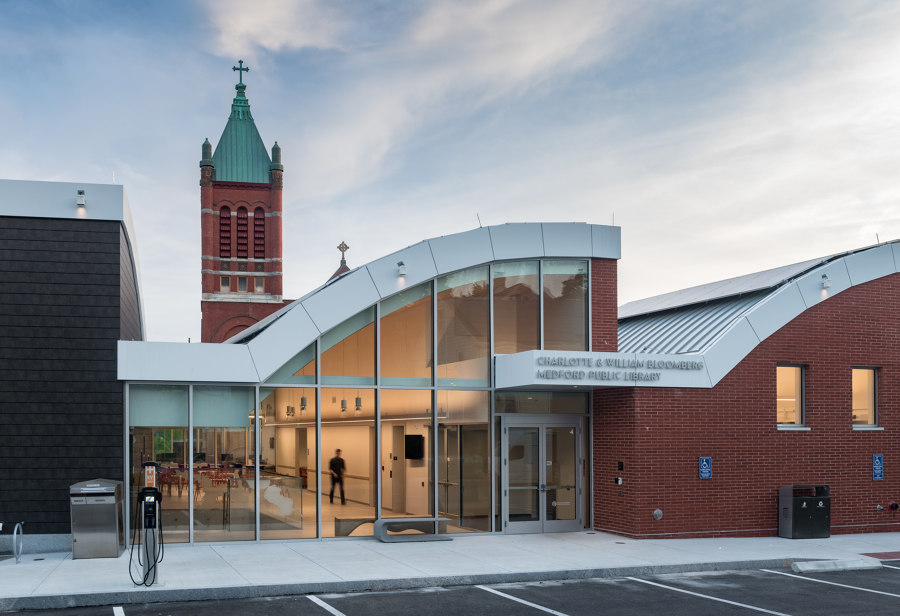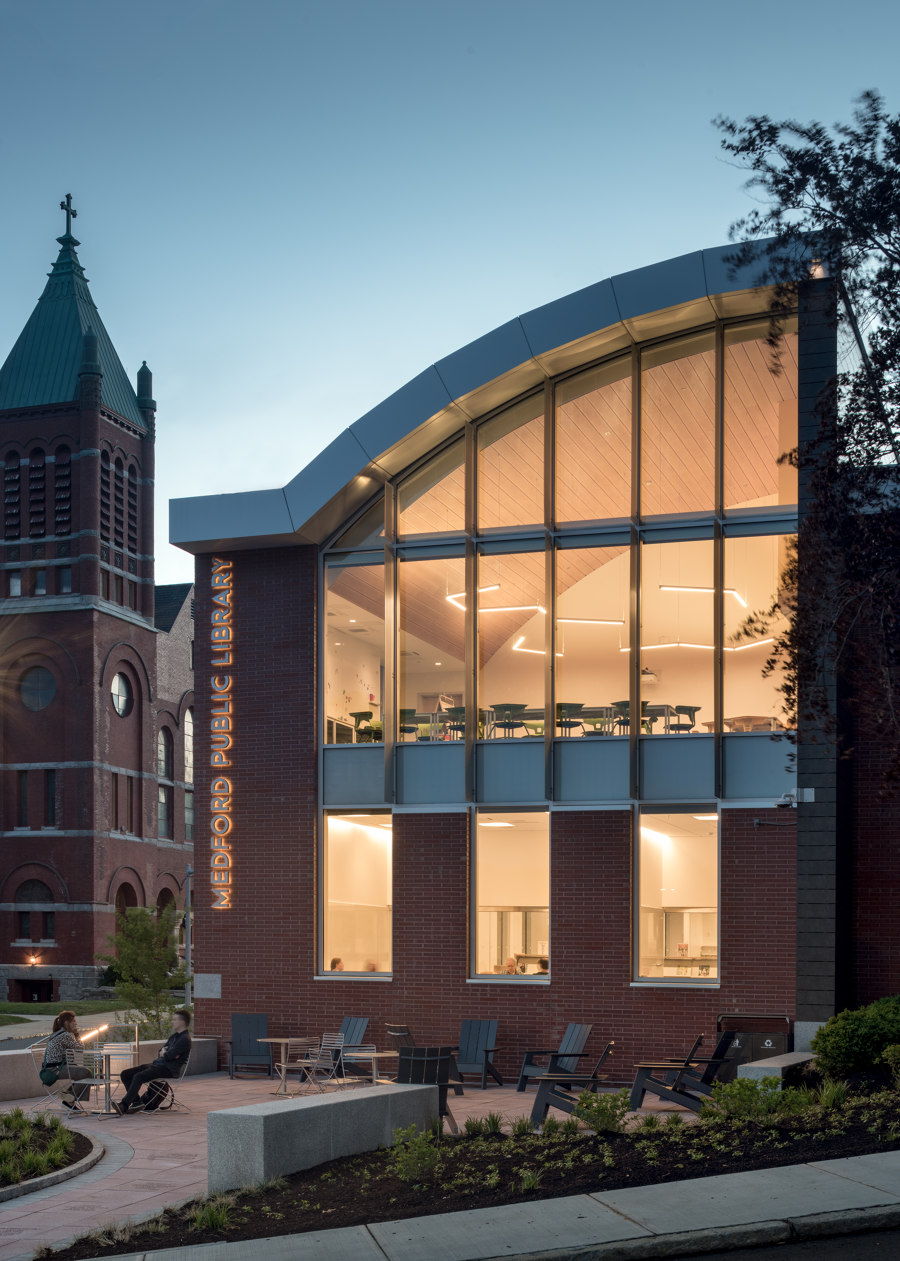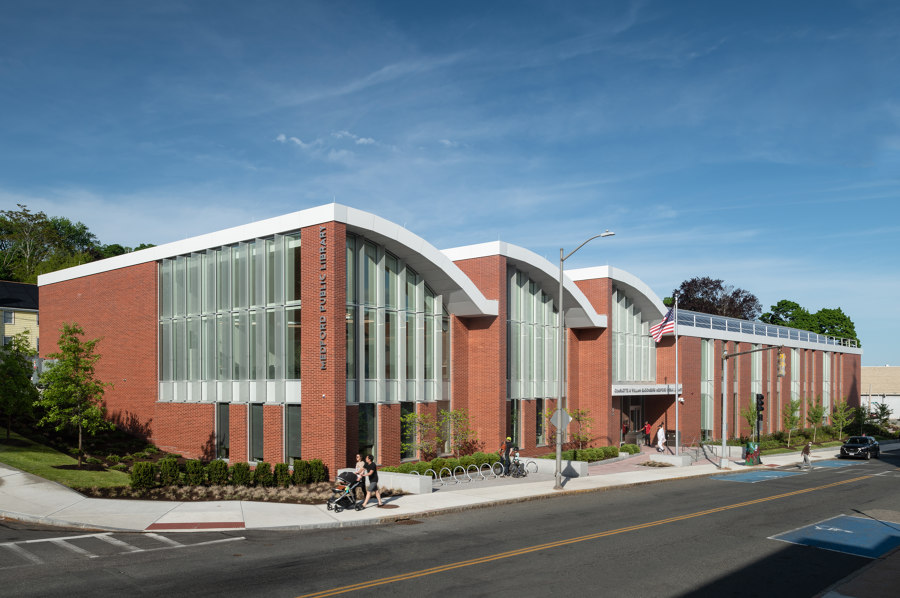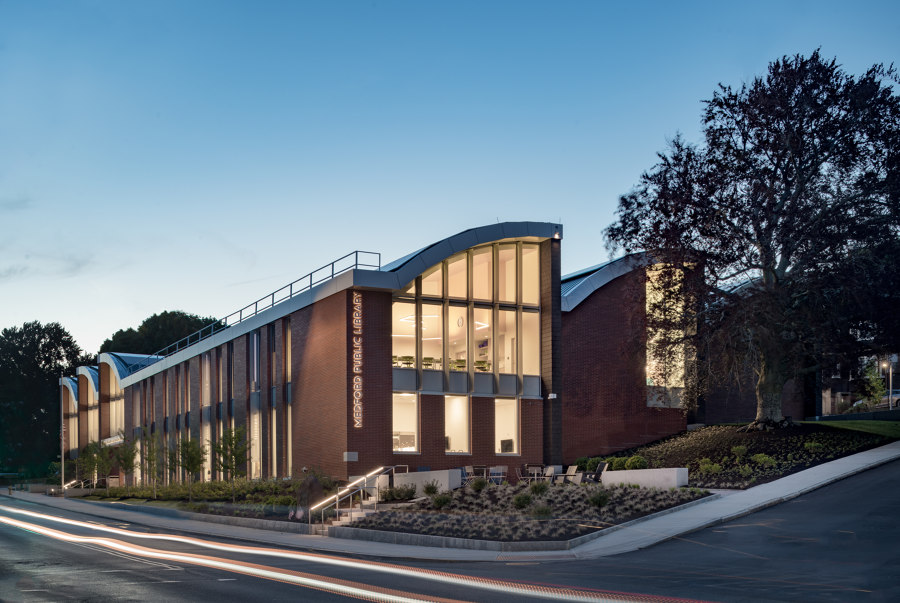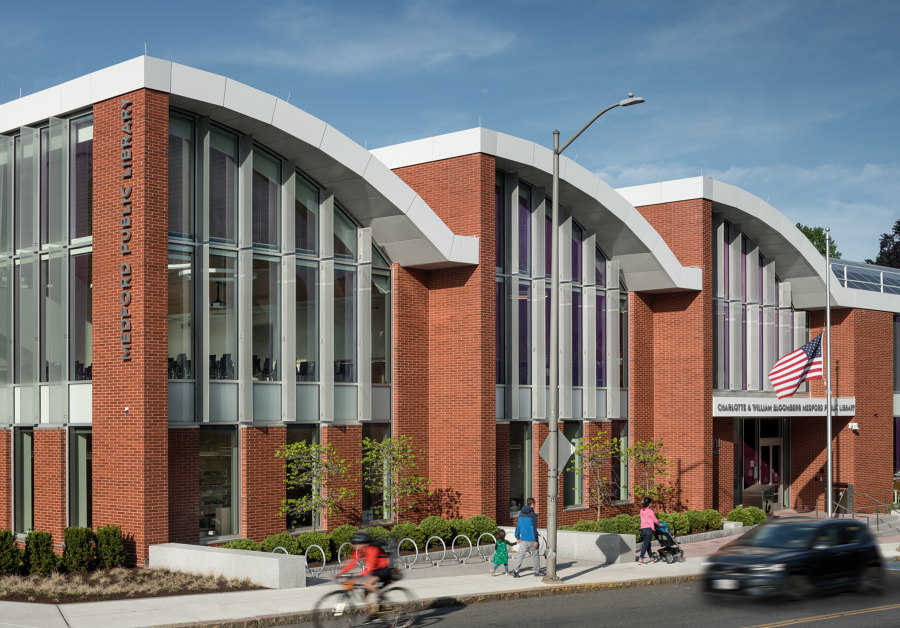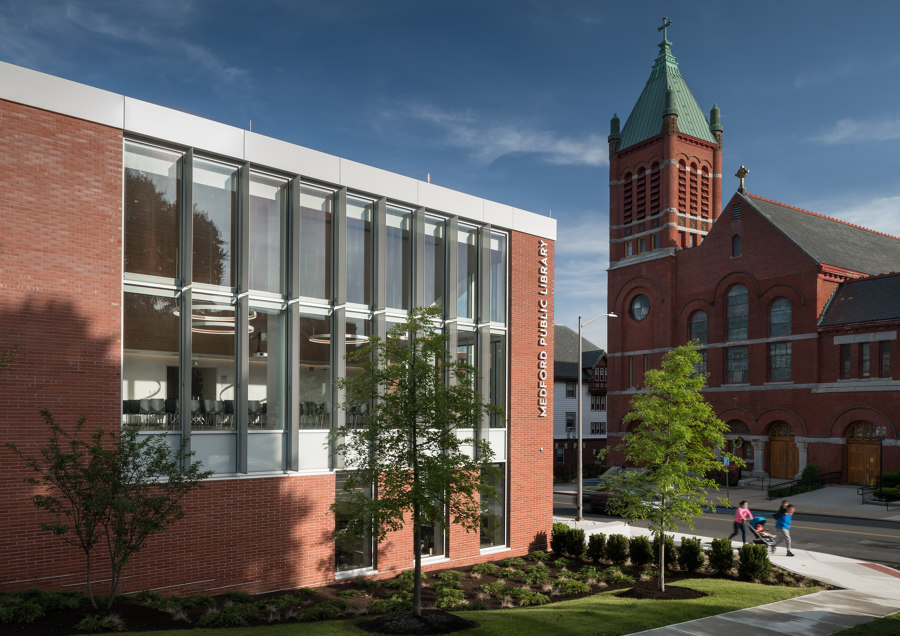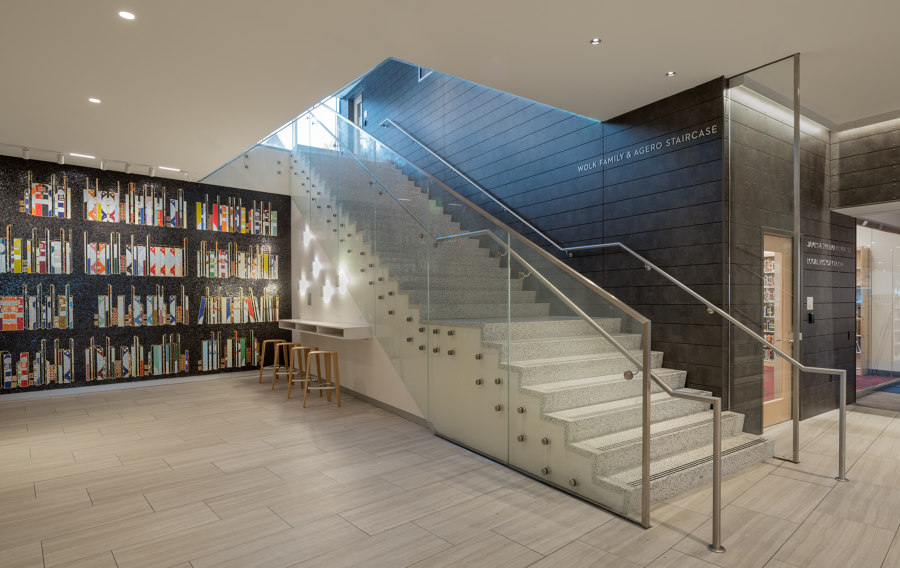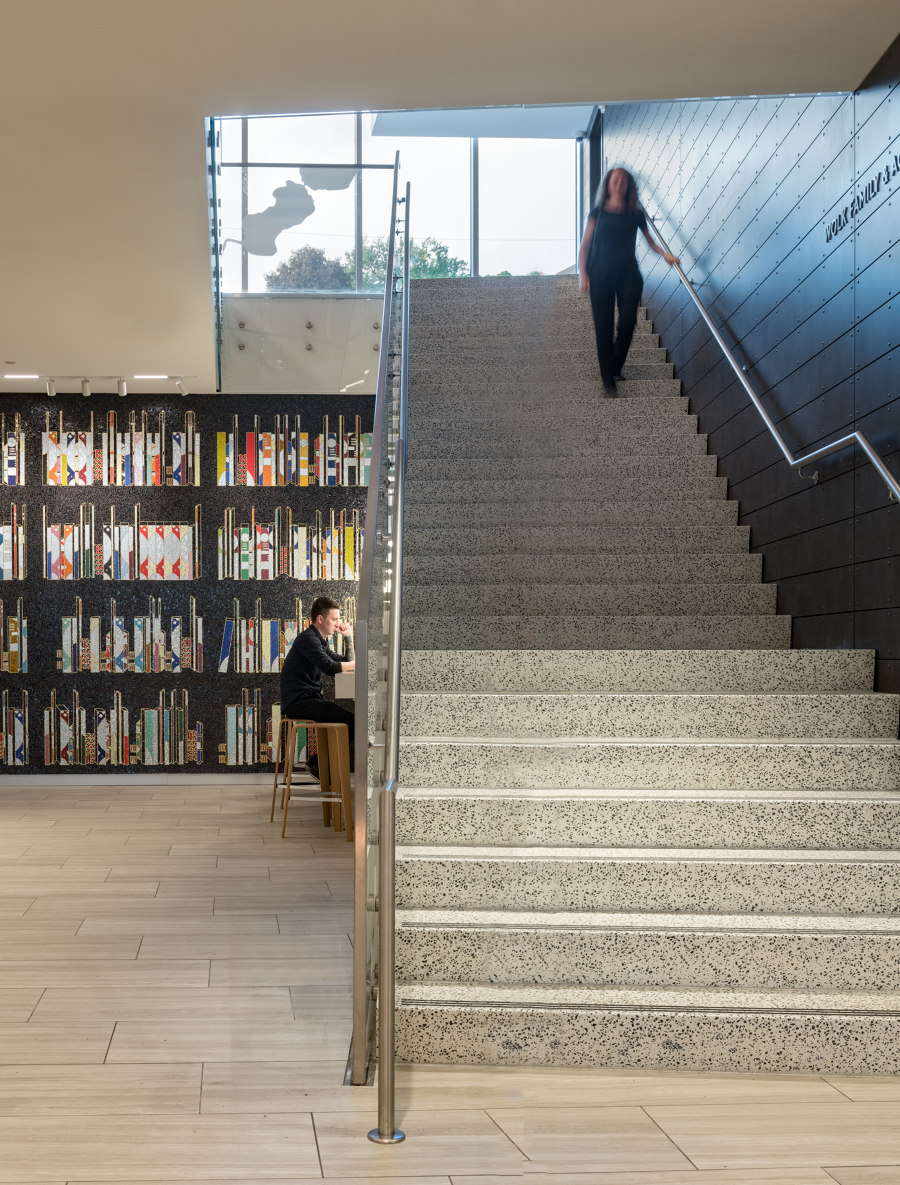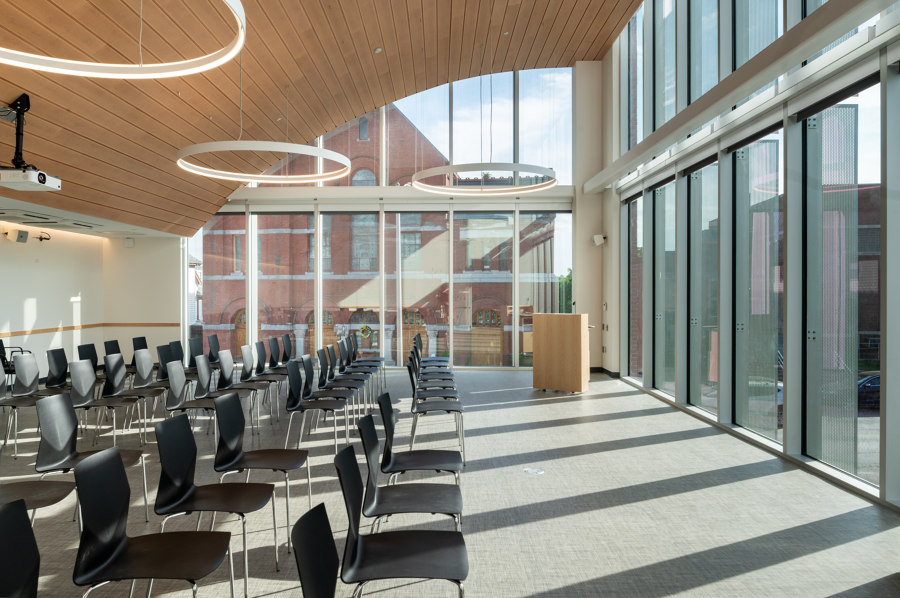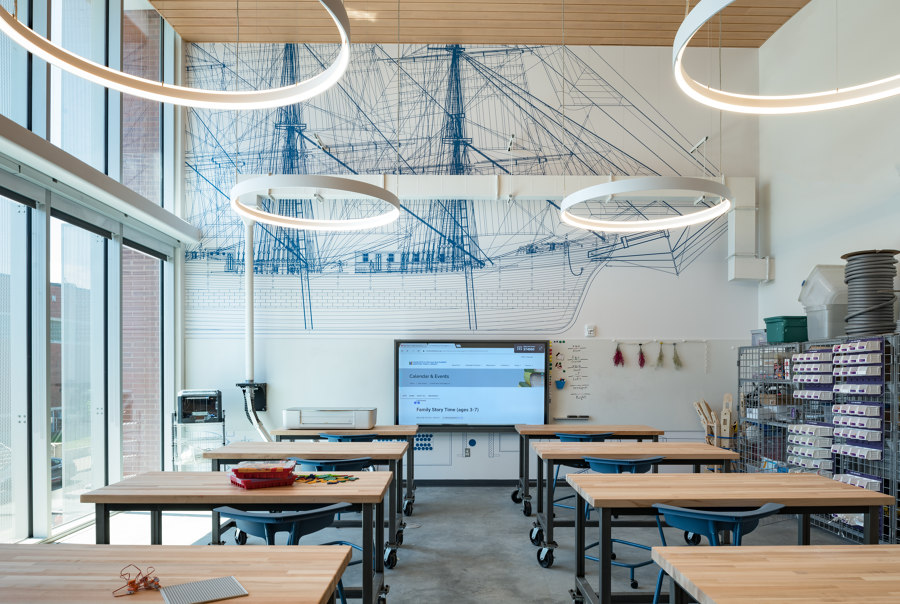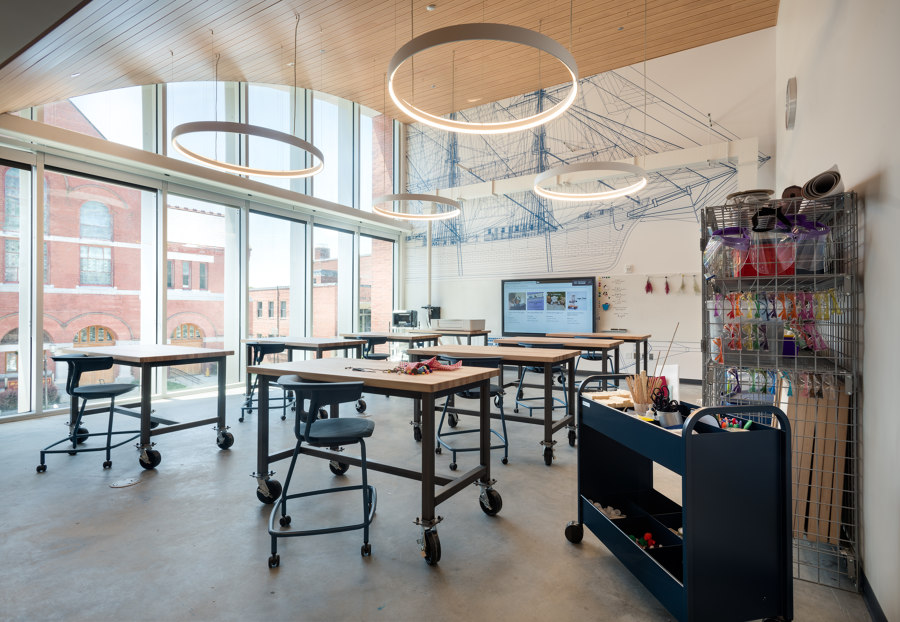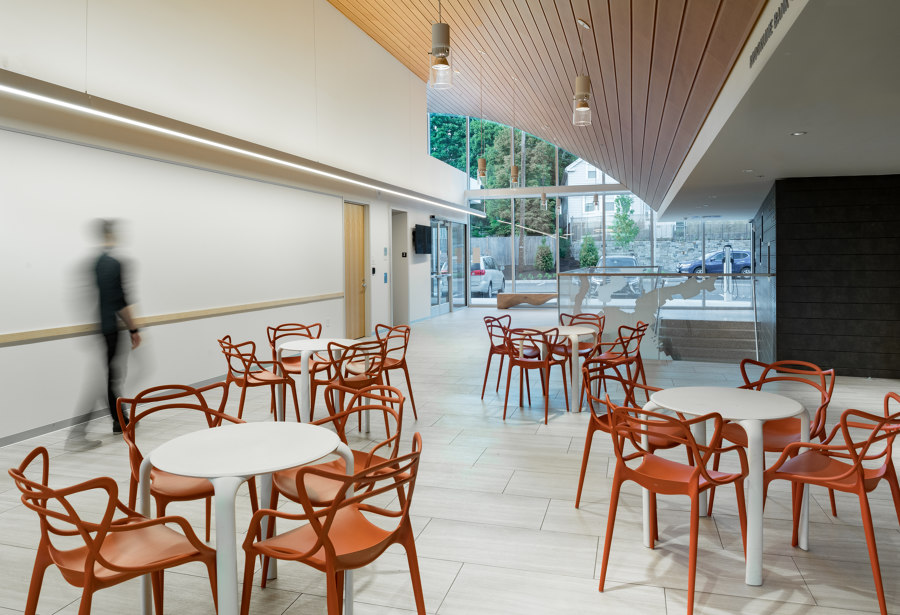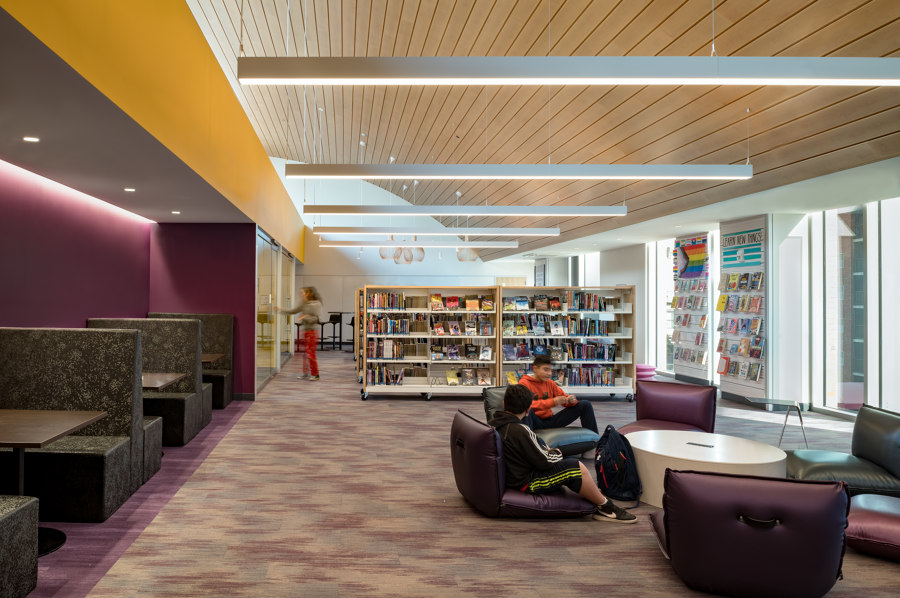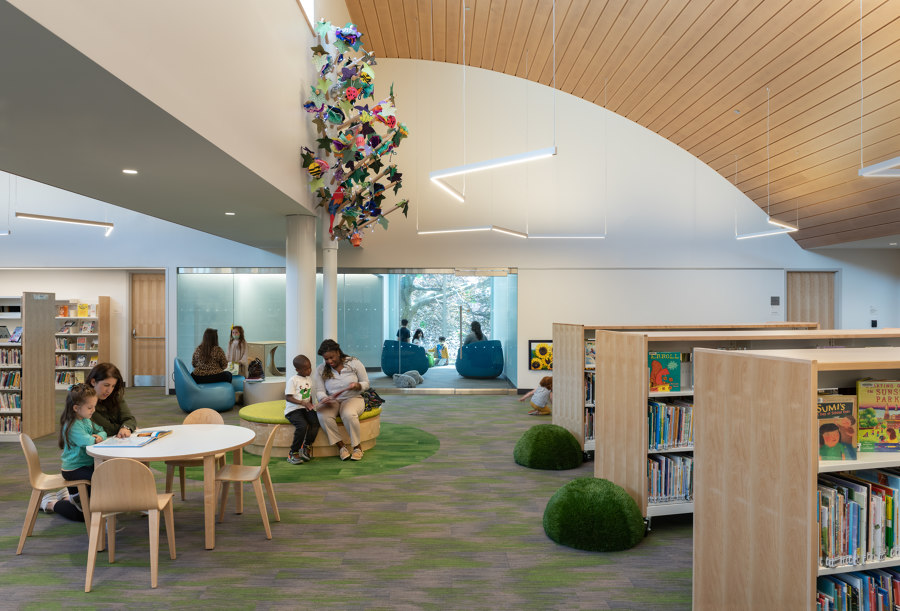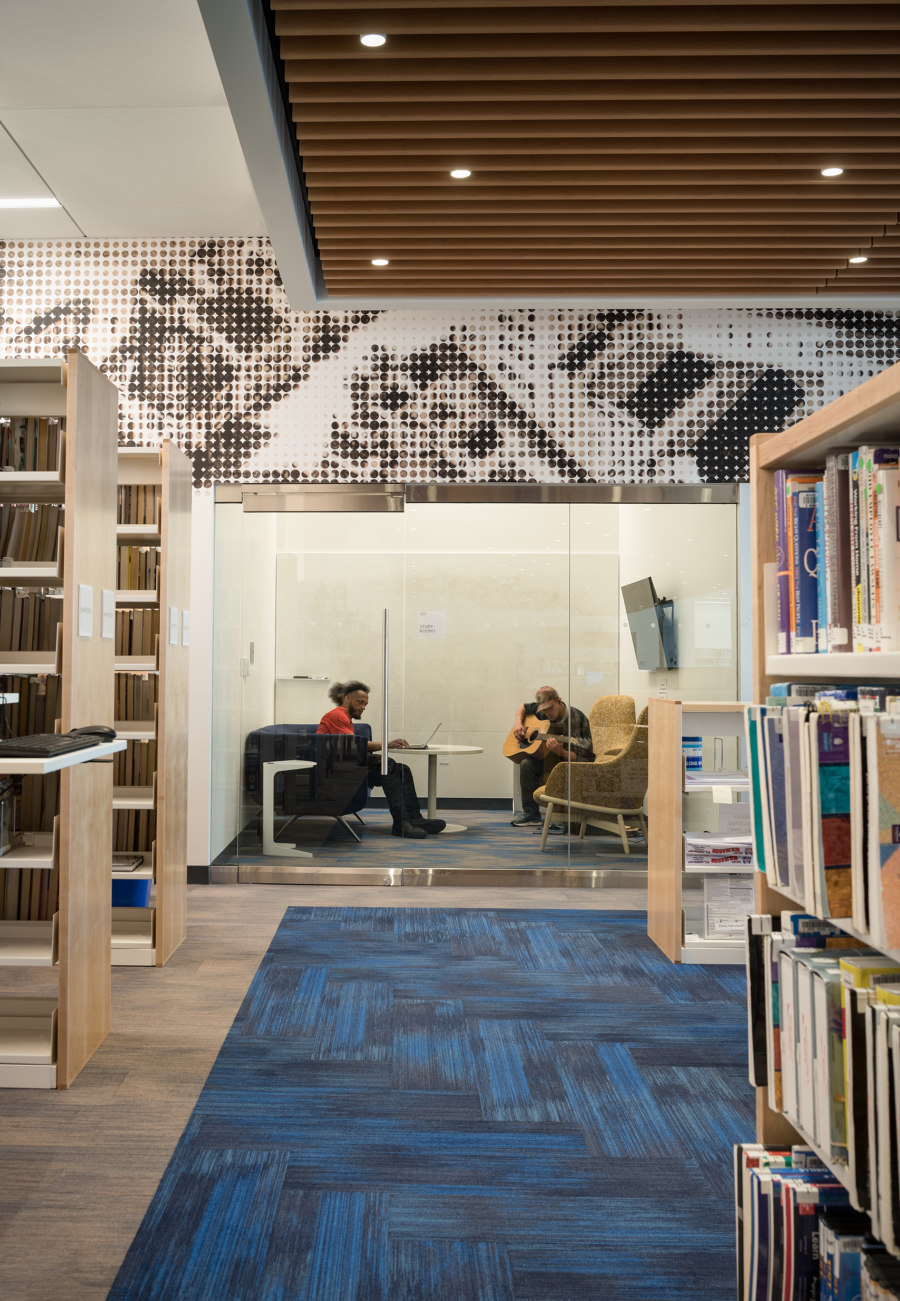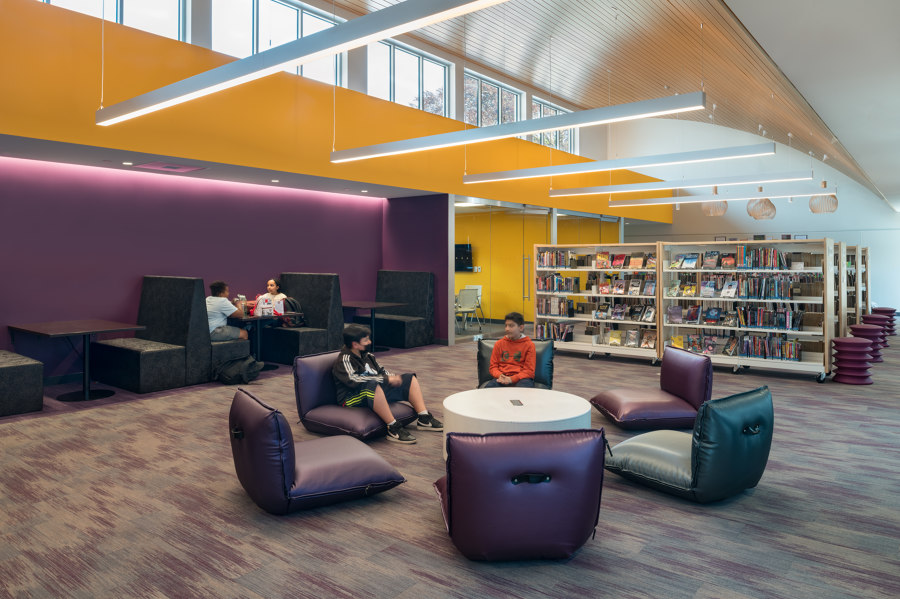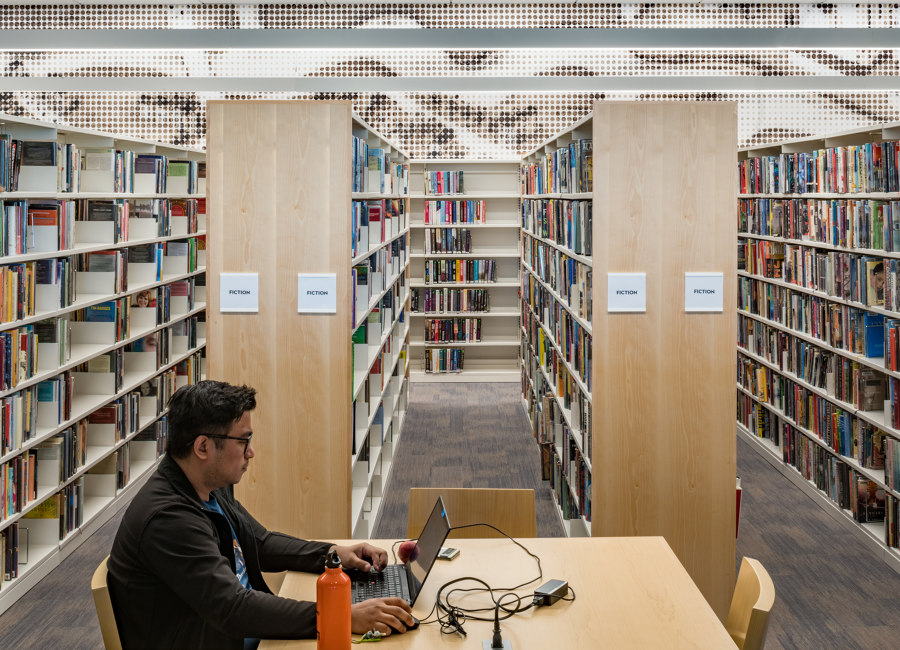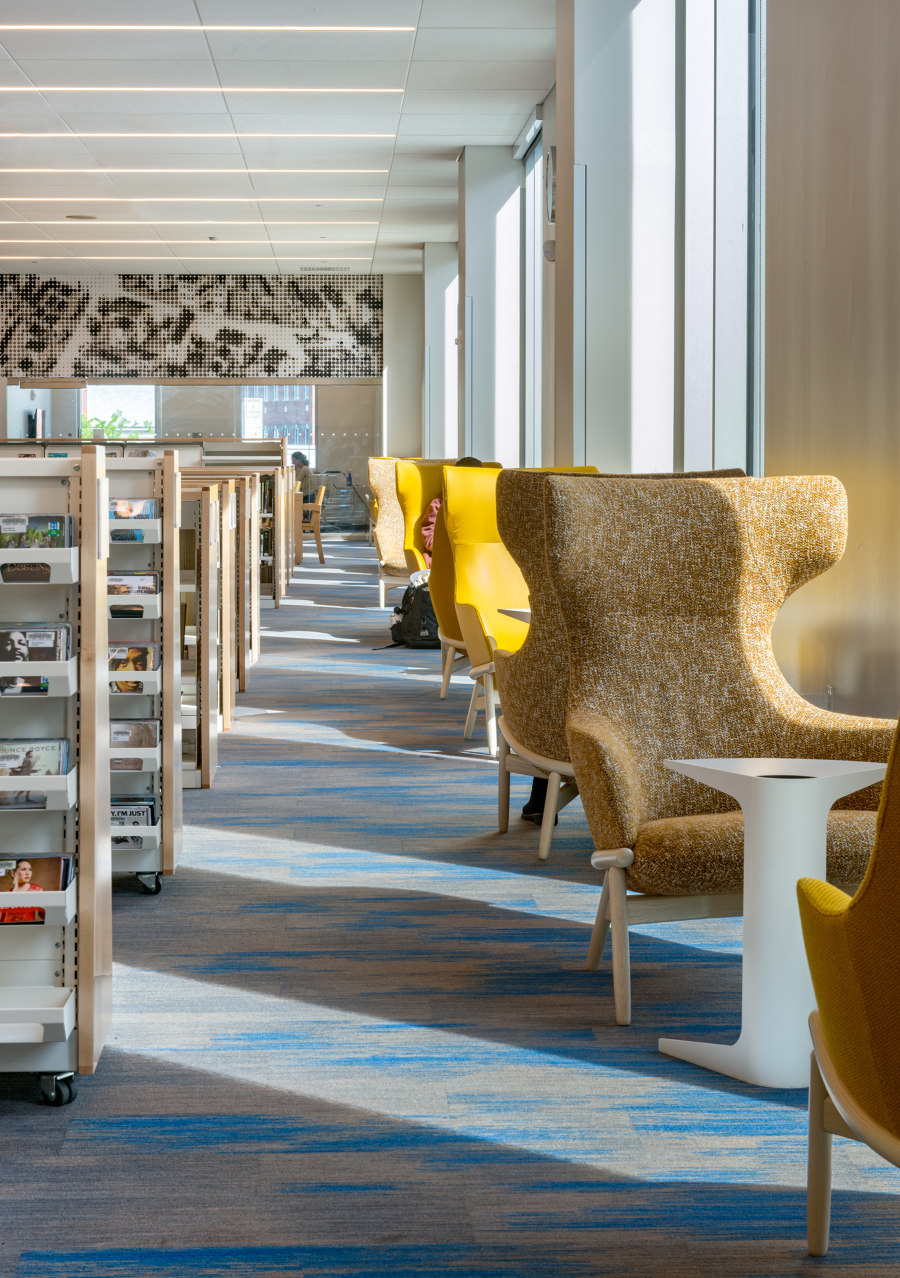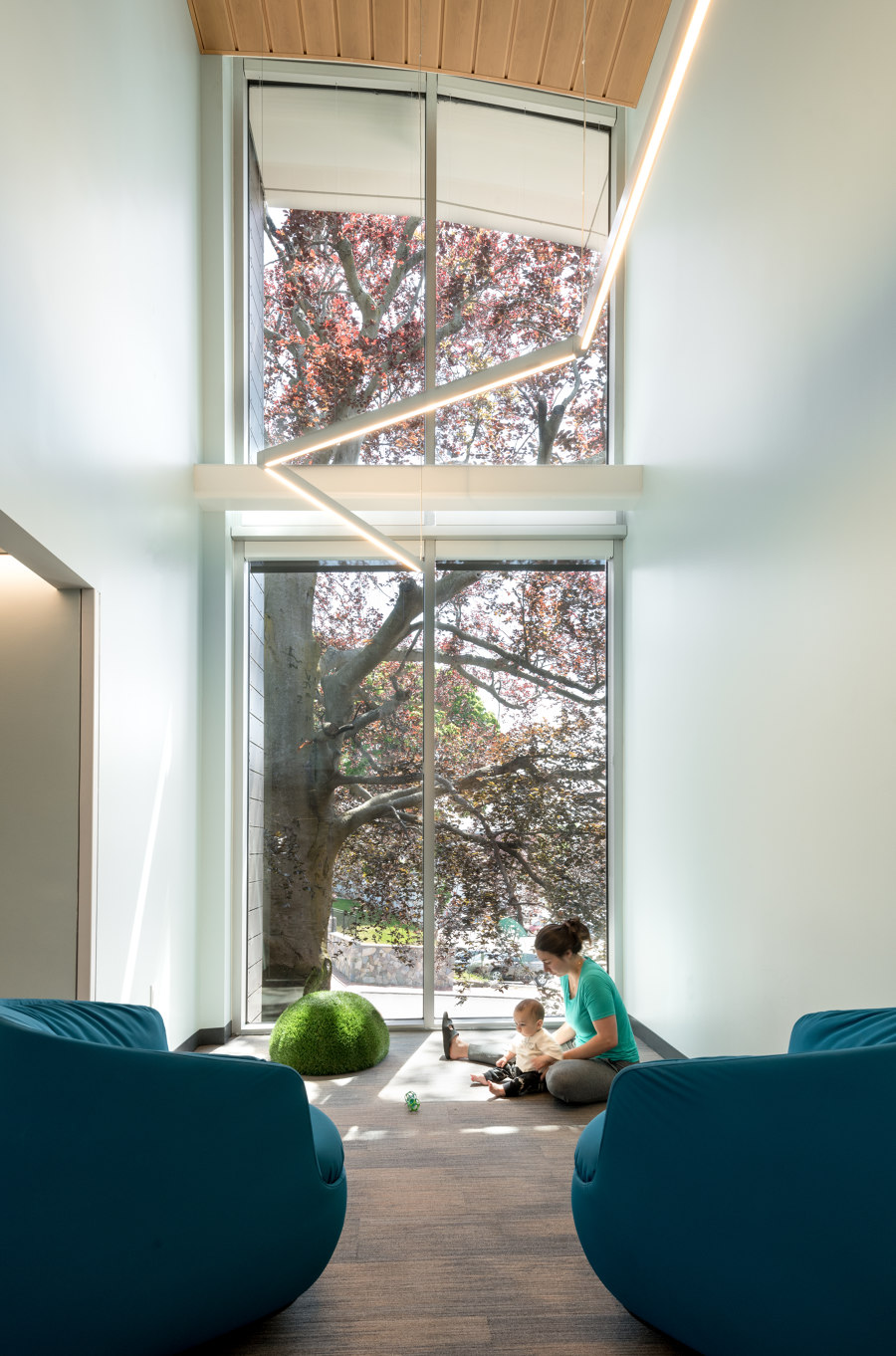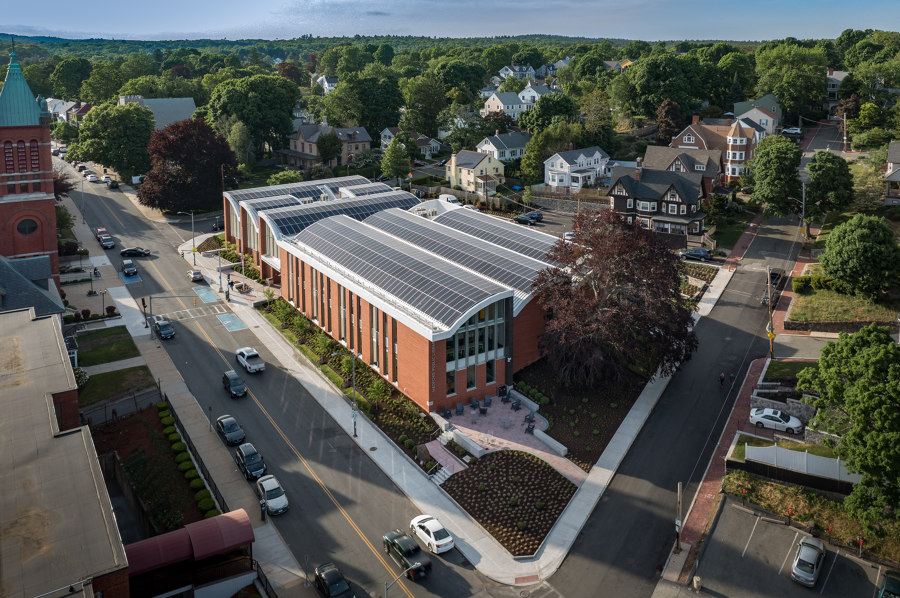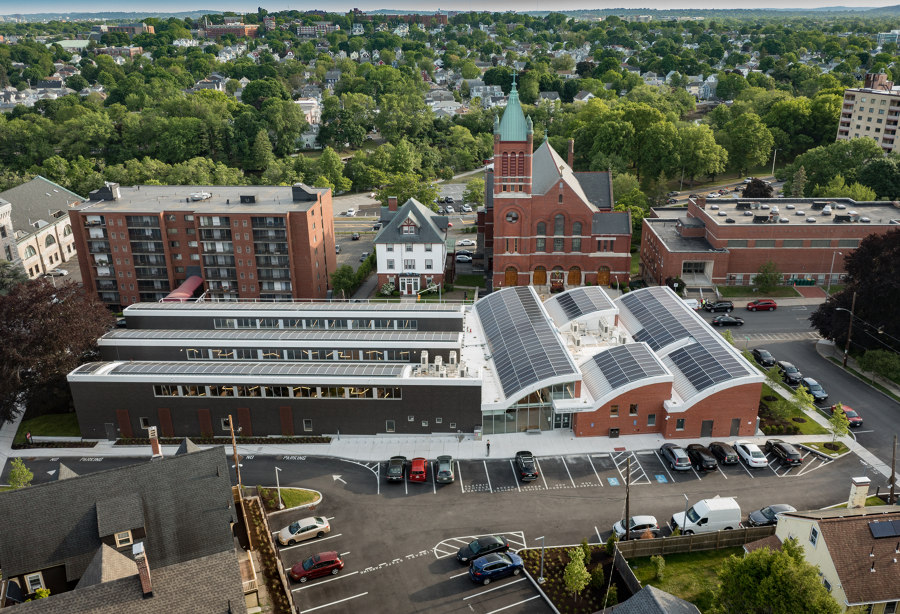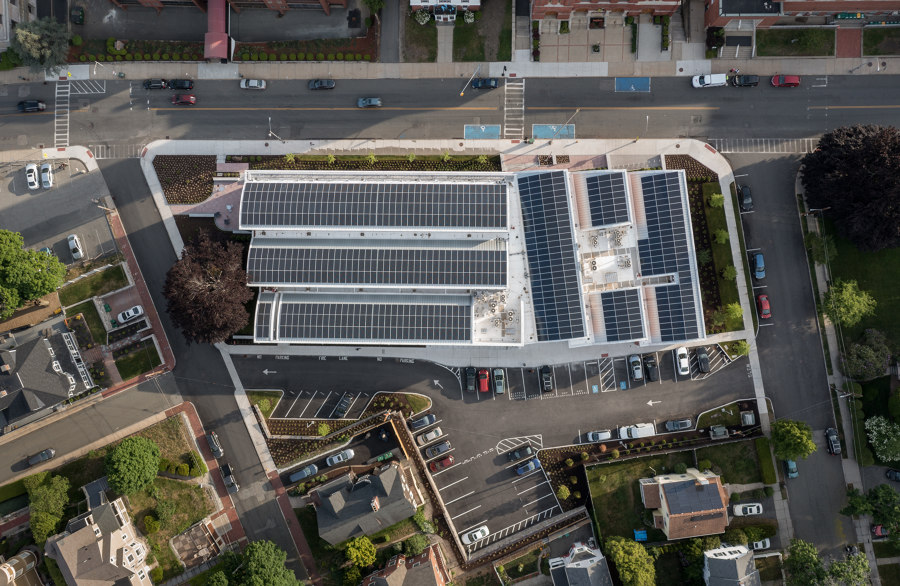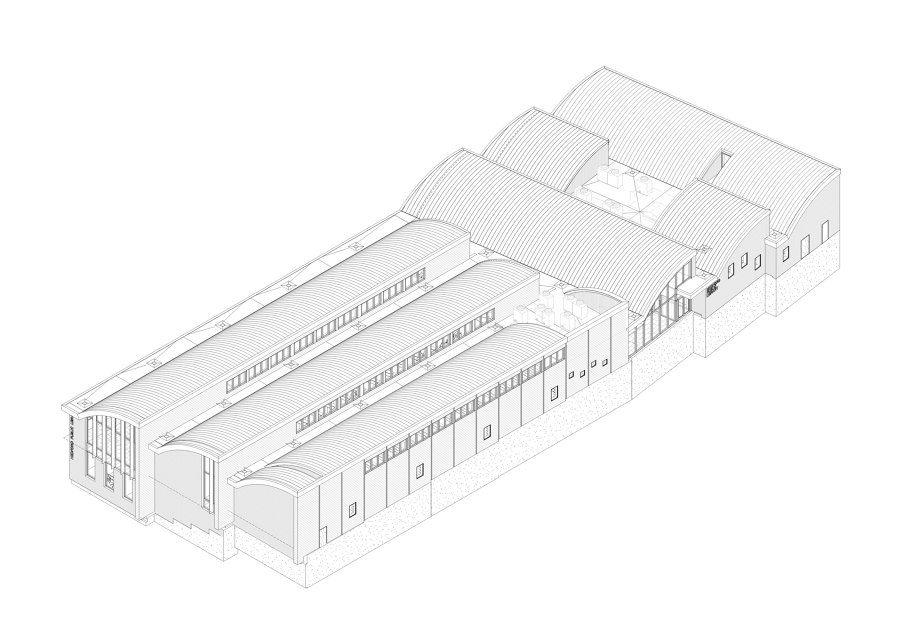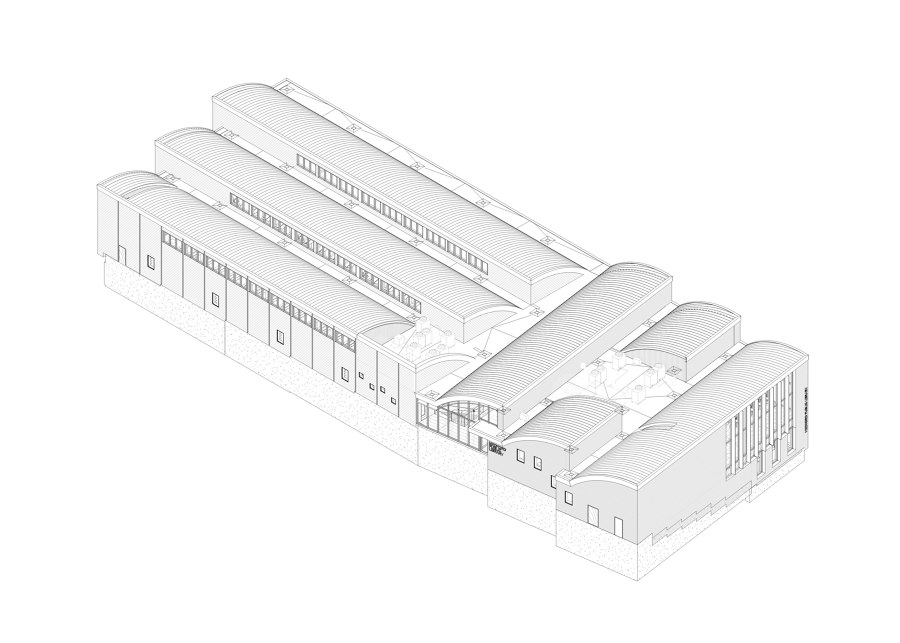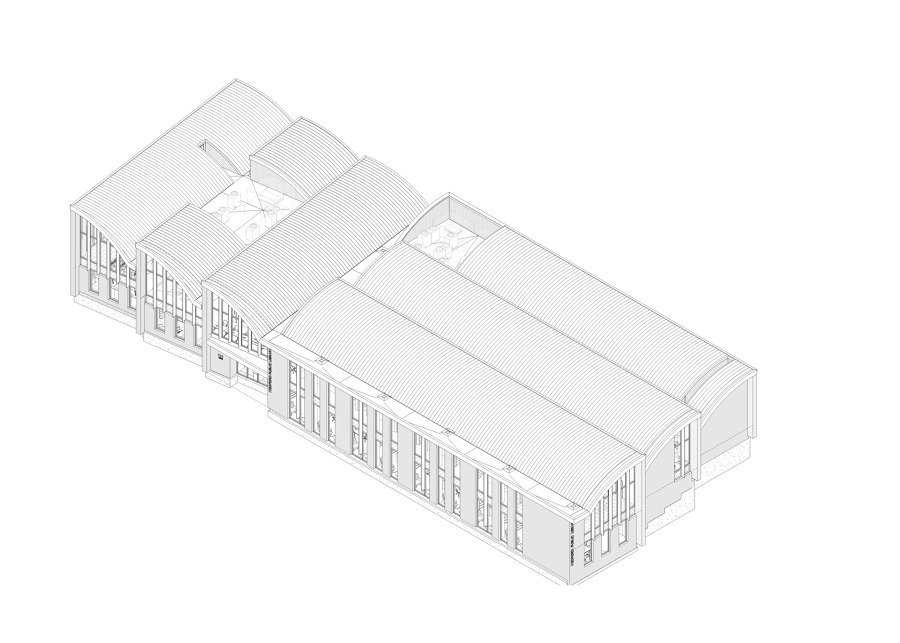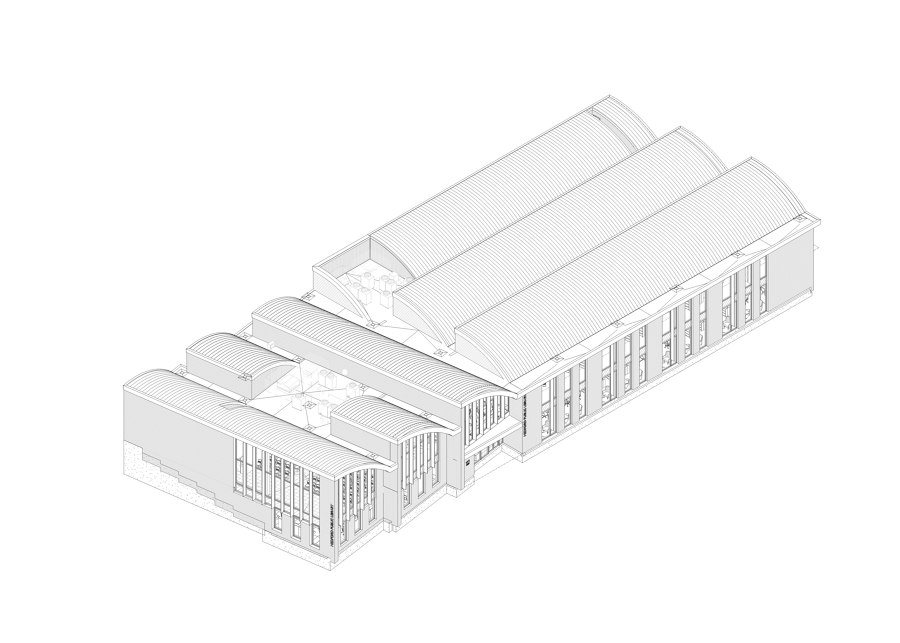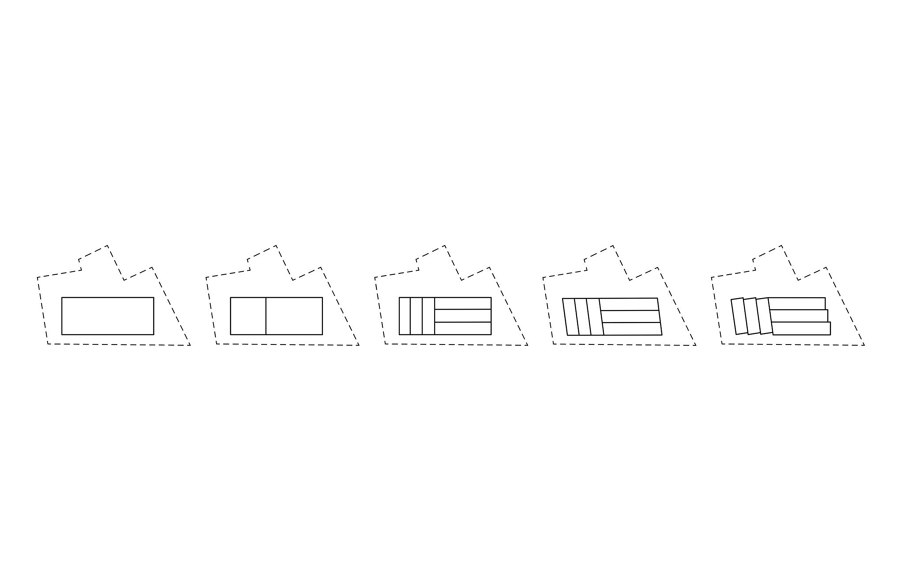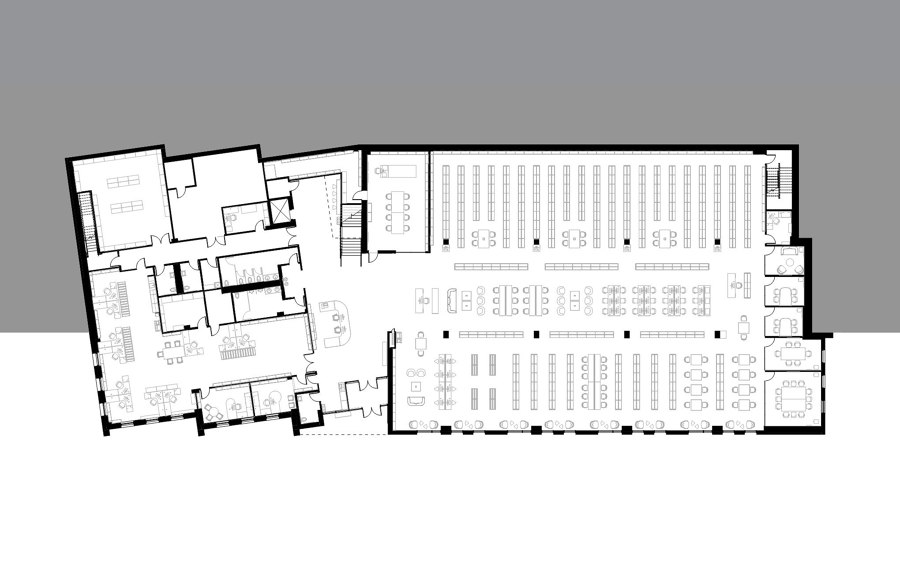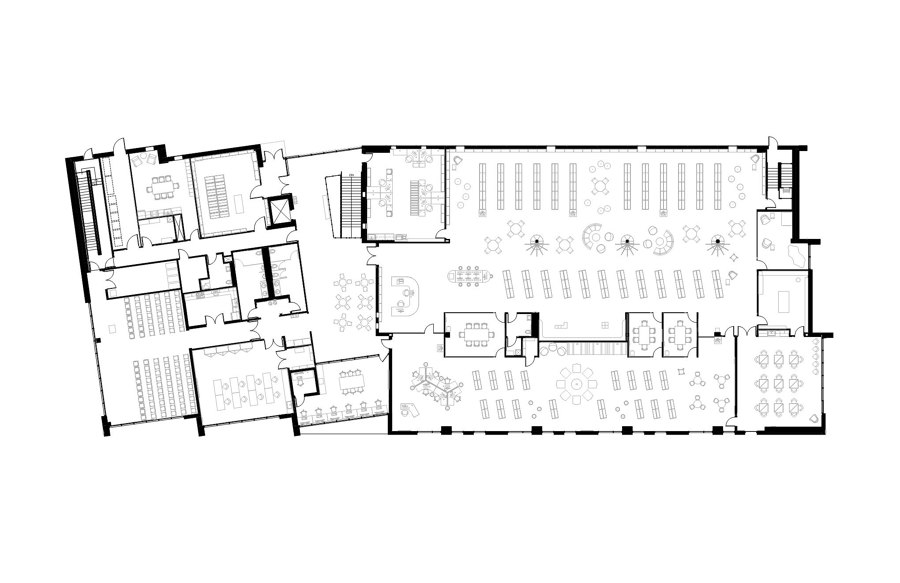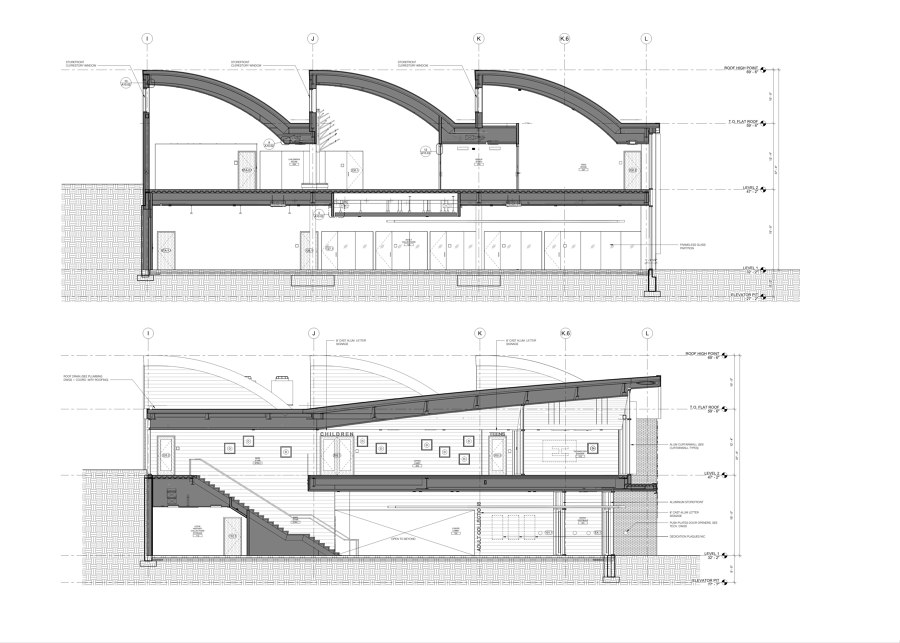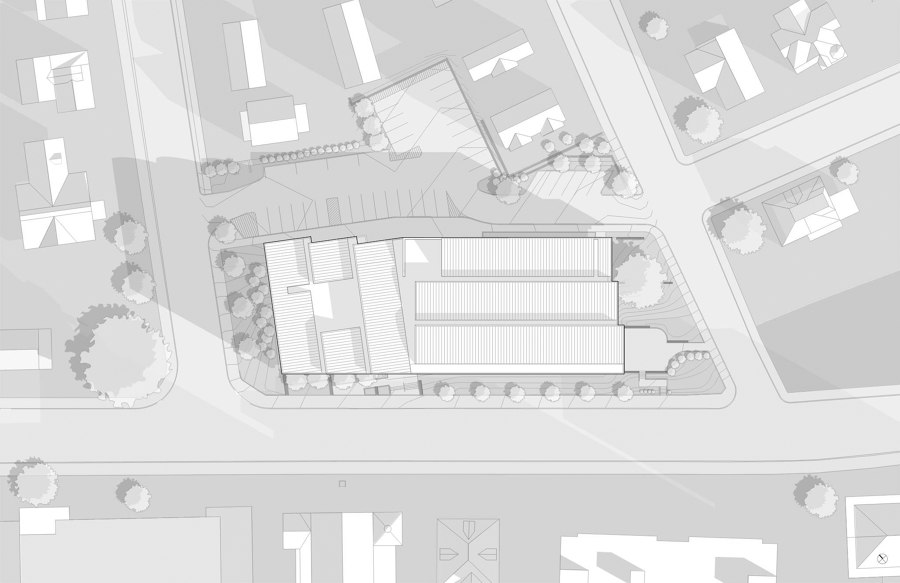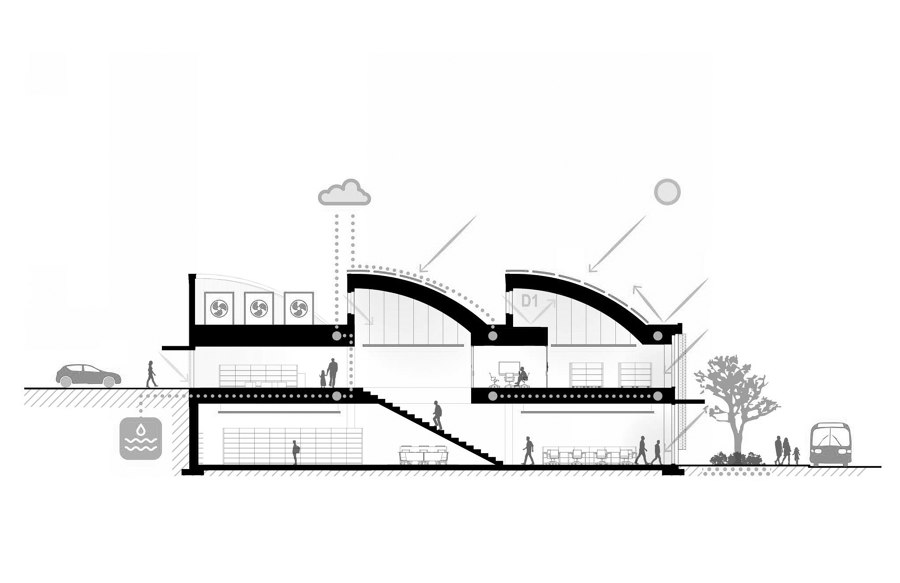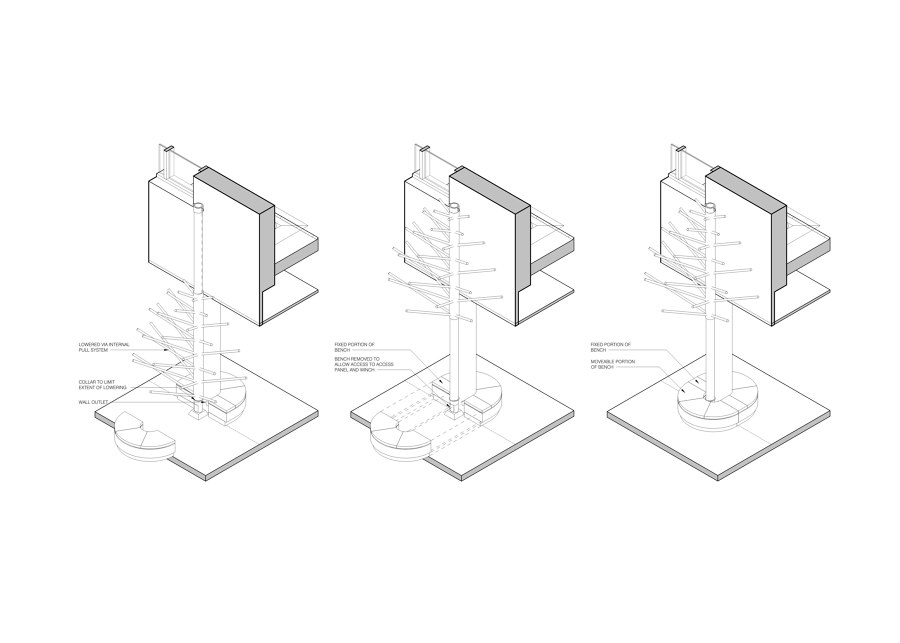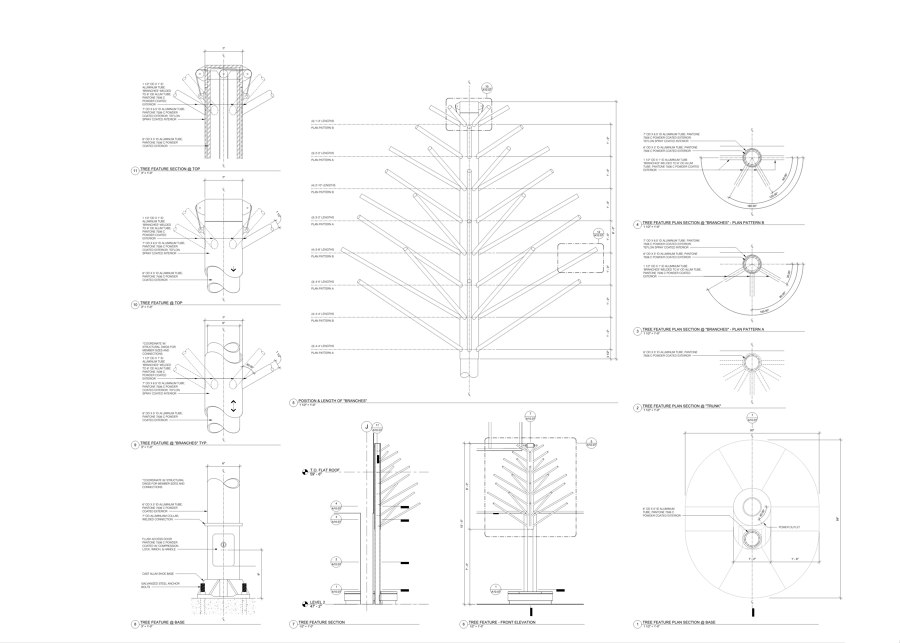Much more than a repository of books, the community-centered library features dedicated areas for programs and events for each age group, complemented by an array of spaces for the public to meet and collaborate. Musicians reserve group study rooms to practice together; local business owners use quiet alcoves to focus, adult learners use the computing resources; teens participate in cupcake decorating contests and poetry slams; children flock to story time, and seniors learn how to record a podcast.
Backing into a steep slope, the library presents a civic-scaled facade on commercial High Street and a less prominent single story facing the single-family homes uphill. The front and rear entries, both fully accessible, feed into a stacked lobby that connects the primary program elements: Acoustically separated spaces for adults, teens, and children; as well as a suite of flexible spaces including a Multipurpose Room, Maker Room, Tech Lab, and Gallery.
The building’s wave-like roof forms and plank-lined ceilings are inspired by Medford’s rich history as a clipper ship manufacturing hub on the Mystic River. Exterior materials were selected to be responsive to their immediate context: The street façade is clad in red Norman brick while the rear, neighborhood-facing façade is created with horizontal planks of HPL rain-screen cladding. The curved roofs are standing seam metal, with aluminum composite material forming the trim. Inside, the curved ceilings are lined in perforated acoustical planks, giving interior spaces a hull-like character. Pixelated historic maps of Medford adorn the main reading room, and a large cross-section of a clipper ship is featured in the Maker Room.
To keep the overall massing of the building within the zoning envelope, the half-acre building footprint was organized into a series of long, repetitive structural bays, each with a wave-shaped roof – a nod to the city’s shipbuilding past. Although the site’s topography and size were significant constraints, a large century-old copper beech tree was carefully preserved so that it could become a feature seen from within the children’s room. This tree served as the inspiration for the nature-themed children’s spaces, where a row of trees can be lowered by a winch so that the library staff can decorate the limbs for each season.
The roof was designed to screen all rooftop mechanical equipment from abutters. Over 600 solar panels cover its curved surfaces, making the all-electric building Massachusetts’s first Net-Zero Energy public library, generating enough power on-site to offset its anticipated energy consumption.
Design Team:
Lead Architects: Angela Ward Hyatt
Landscape Architecture: Deborah Myers Landscape Architecture
Structural Engineer: RSE Associates Inc.
MEP Engineer: GGD Consulting Engineers, Inc.
Sustainability Consultant: VvS
Lighting Design: HLB Lighting Design
Civil Engineer: Green International Affiliates, Inc.
Project Manager / Project Architect: Kelsey Laser
Interior Design: Chelsea DeCrescenzo Gozzi
Specifications / Qaqc: Robert Silver
Technical Staff: Ethan Levin, Steve Crock
Environmental Graphics: Roll Barresi & Associates
Code Consultant: Jensen Hughes
